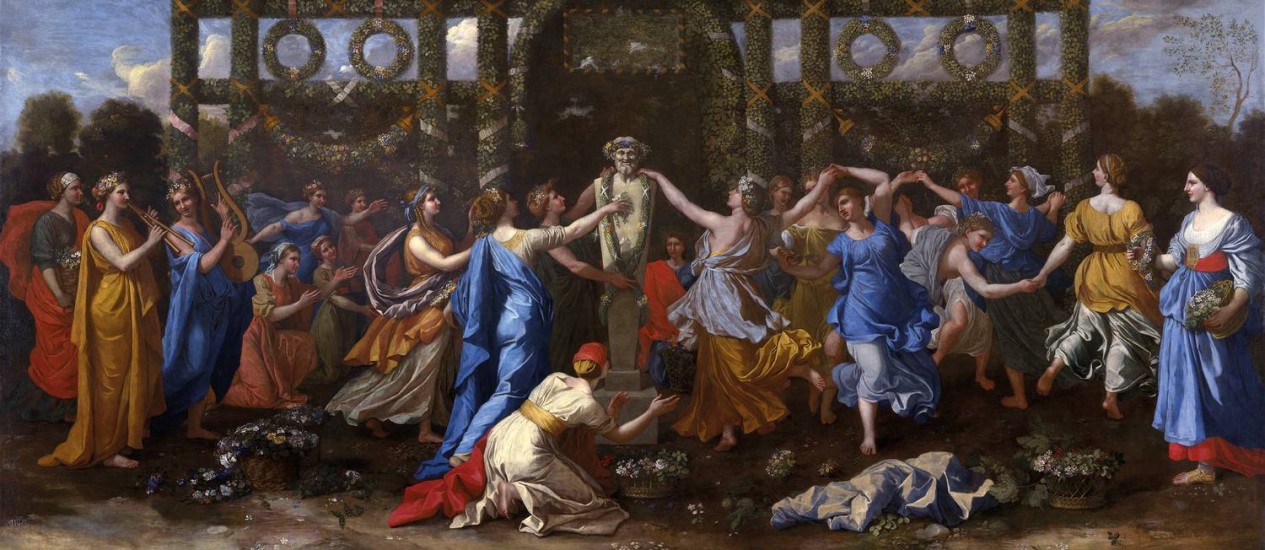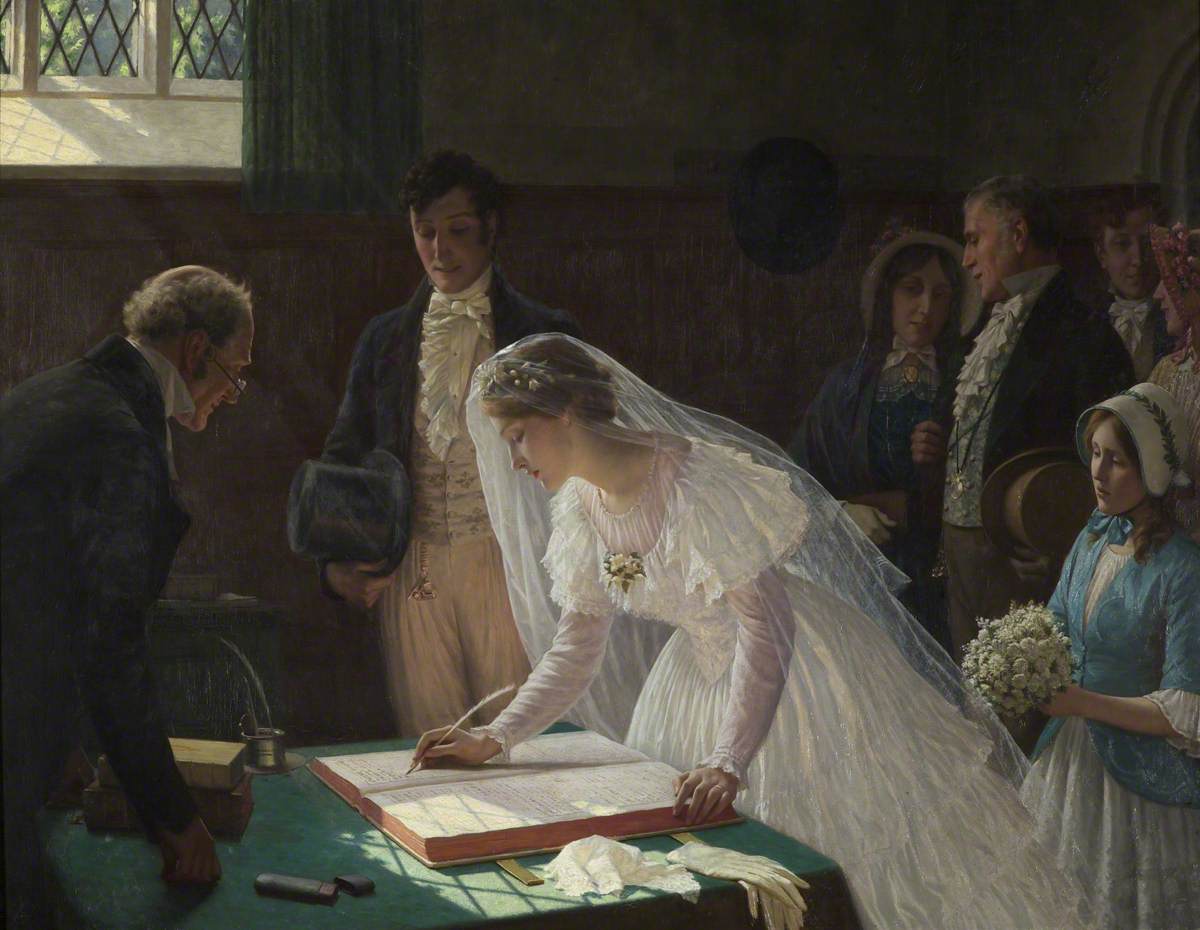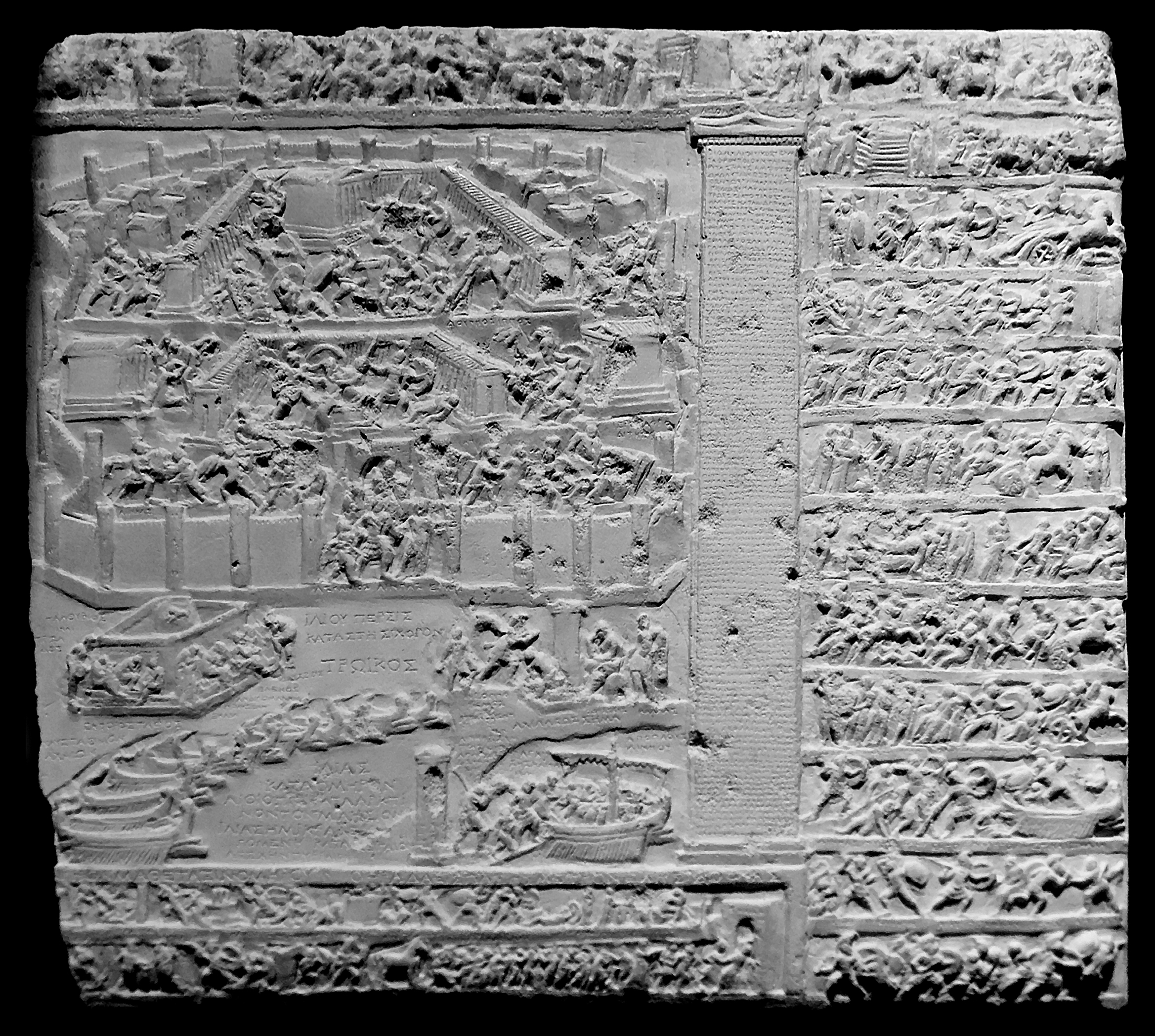|
Epithalamium
An epithalamium (; Latin form of Greek ἐπιθαλάμιον ''epithalamion'' from ἐπί ''epi'' "upon," and θάλαμος ''thalamos'' nuptial chamber) is a poem written specifically for the bride on the way to her marital chamber. This form continued in popularity through the history of the classical world; the Roman poet Catullus wrote a famous epithalamium, which was translated from or at least inspired by a now-lost work of Sappho. According to Origen, the Song of Songs might be an epithalamium on the marriage of Solomon with Pharaoh's daughter. History It was originally among the Greeks a song in praise of bride and bridegroom, sung by a number of boys and girls at the door of the nuptial chamber. According to the scholiast on Theocritus, one form was employed at night, and another, to rouse the bride and bridegroom on the following morning. In either case, as was natural, the main burden of the song consisted of invocations of blessing and predictions of happiness, ... [...More Info...] [...Related Items...] OR: [Wikipedia] [Google] [Baidu] |
Claudian
Claudius Claudianus, known in English as Claudian (; c. 370 – c. 404 AD), was a Latin poet associated with the court of the Roman emperor Honorius at Mediolanum (Milan), and particularly with the general Stilicho. His work, written almost entirely in hexameters or elegiac couplets, falls into three main categories: poems for Honorius, poems for Stilicho, and mythological epic. Life Claudian was born in Alexandria. He arrived in Rome in 394 and made his mark as a court poet with a eulogy of his two young patrons, Probinus and Olybrius, consuls of 395. He wrote a number of panegyrics on the consulship of his patrons, praise poems for the deeds of Stilicho, and invectives directed at Stilicho's rivals in the Eastern court of Arcadius. Little is known about his personal life, but it seems he was a convinced pagan: Augustine refers to him as the 'adversary of the name of Christ' ('' Civitas Dei'', V, 26), and Paul Orosius describes him as an 'obstinate pagan' (''paganu ... [...More Info...] [...Related Items...] OR: [Wikipedia] [Google] [Baidu] |
Fescennine
Fescennine Verses (Fescennina carmina), one of the earliest kinds of Italian poetry, subsequently developed into satire and Roman comic drama. History Originally sung at village harvest-home rejoicing, they made their way into the towns, and became the fashion at religious festivals and private gatherings, especially weddings, to which in later times they were practically restricted. They were usually in the Saturnine metre and took the form of a dialogue consisting of an interchange of extemporaneous raillery. Those who took part in them wore masks made of the bark of trees. At first harmless and good-humored, if somewhat coarse, these songs gradually outstripped the bounds of decency; malicious attacks were made upon both gods and men, and the matter became so serious that the law intervened and scurrilous personalities were forbidden by the Twelve Tables (Cicero, ''De re publica'', 4.10; see also Horace ''epist''. 2.1.139). Examples Specimens of the Fescennines used at wedding ... [...More Info...] [...Related Items...] OR: [Wikipedia] [Google] [Baidu] |
Helen Of Troy
Helen of Troy, Helen, Helena, (Ancient Greek: Ἑλένη ''Helénē'', ) also known as beautiful Helen, Helen of Argos, or Helen of Sparta, was a figure in Greek mythology said to have been the most beautiful woman in the world. She was believed to have been the daughter of Zeus and Leda, and was the sister of Clytemnestra, Castor and Pollux, Philonoe, Phoebe and Timandra. She was married to King Menelaus of Sparta "who became by her the father of Hermione, and, according to others, of Nicostratus also." The usual tradition is that after the goddess Aphrodite promised her to Paris in the Judgement of Paris, she was seduced by him and carried off to Troy. This resulted in the Trojan War when the Achaeans set out to reclaim her. Another ancient tradition, told by Stesichorus, tells of how "not she, but her wraith only, had passed to Troy, while she was borne by the Gods to the land of Egypt, and there remained until the day when her lord Menelaus, turning aside on the h ... [...More Info...] [...Related Items...] OR: [Wikipedia] [Google] [Baidu] |
Catullus
Gaius Valerius Catullus (; 84 - 54 BCE), often referred to simply as Catullus (, ), was a Latin poet of the late Roman Republic who wrote chiefly in the neoteric style of poetry, focusing on personal life rather than classical heroes. His surviving works are still read widely and continue to influence poetry and other forms of art. Catullus's poems were widely appreciated by contemporary poets, significantly influencing Ovid and Virgil, among others. After his rediscovery in the Late Middle Ages, Catullus again found admirers such as Petrarch. The explicit sexual imagery which he uses in some of his poems has shocked many readers. Yet, at many instruction levels, Catullus is considered a resource for teachers of Latin. Catullus's style is highly personal, humorous, and emotional; he frequently uses hyperbole, anaphora, alliteration, and diminutives. In 25 of his poems he mentions his devotion to a woman he refers to as " Lesbia", who is widely believed to have been the ... [...More Info...] [...Related Items...] OR: [Wikipedia] [Google] [Baidu] |
Hymenaios
Hymen ( grc, Ὑμήν), Hymenaios or Hymenaeus, in Hellenistic religion, is a god of marriage ceremonies, inspiring feasts and song. Related to the god's name, a ''hymenaios'' is a genre of Greek lyric poetry sung during the procession of the bride to the groom's house in which the god is addressed, in contrast to the '' Epithalamium'', which is sung at the nuptial threshold. He is one of the winged love gods, the Erotes. Hymen is the son of Apollo and one of the muses, Clio or Calliope or Urania or Terpsichore. Etymology Hymen's name is derived from the Proto-Indo-European root *''syuh₁-men''-, "to sew together," hence, "joiner;" it is also recorded in Doric Greek as Ῡ̔μᾱ́ν (''Hyman''). The term ''hymen'' was also used for a thin skin or membrane, such as the hymen that covers the vaginal opening and was traditionally supposed to be broken by sexual intercourse following a woman's (first) marriage. So, the membrane's name was not directly connected to that of ... [...More Info...] [...Related Items...] OR: [Wikipedia] [Google] [Baidu] |
Nuptial
A wedding is a ceremony where two people are united in marriage. Wedding traditions and customs vary greatly between cultures, ethnic groups, religions, countries, and social classes. Most wedding ceremonies involve an exchange of marriage vows by a couple, presentation of a gift (offering, rings, symbolic item, flowers, money, dress), and a public proclamation of marriage by an authority figure or celebrant. Special wedding garments are often worn, and the ceremony is sometimes followed by a wedding reception. Music, poetry, prayers, or readings from religious texts or literature are also commonly incorporated into the ceremony, as well as superstitious customs. Common elements across cultures Some cultures have adopted the traditional Western custom of the white wedding, in which a bride wears a white wedding dress and veil. This tradition was popularized through the marriage of Queen Victoria. Some say Victoria's choice of a white gown may have simply been a sign of ... [...More Info...] [...Related Items...] OR: [Wikipedia] [Google] [Baidu] |
Stesichorus
Stesichorus (; grc-gre, Στησίχορος, ''Stēsichoros''; c. 630 – 555 BC) was a Greek lyric poet native of today's Calabria (Southern Italy). He is best known for telling epic stories in lyric metres, and for some ancient traditions about his life, such as his opposition to the tyrant Phalaris, and the blindness he is said to have incurred and cured by composing verses first insulting and then flattering to Helen of Troy. He was ranked among the nine lyric poets esteemed by the scholars of Hellenistic Alexandria, and yet his work attracted relatively little interest among ancient commentators, so that remarkably few fragments of his poetry now survive. As David Campbell notes: "Time has dealt more harshly with Stesichorus than with any other major lyric poet." Recent discoveries, recorded on Egyptian papyrus (notably and controversially, the Lille Stesichorus),P.J. Parsons, "The Lille Stesichorus", ''Zeitschreift für Papyrologie und Epigraphik'' Vol. 26 (1977), pages 7 ... [...More Info...] [...Related Items...] OR: [Wikipedia] [Google] [Baidu] |
Julius Caesar Scaliger
Julius Caesar Scaliger (; April 23, 1484 – October 21, 1558), or Giulio Cesare della Scala, was an Italian scholar and physician, who spent a major part of his career in France. He employed the techniques and discoveries of Renaissance humanism to defend Aristotelianism against the New Learning. In spite of his contentious disposition, his contemporary reputation was high. Jacques Auguste de Thou claimed that none of the ancients could be placed above him and that he had no equal in his own time. Biography Scaliger's father, Benedetto Bordone, was a miniaturist and illuminator. Scaliger himself was known in his youth by the family name Bordone, but later insisted that he was a scion of the house of La Scala, for a hundred and fifty years lords of Verona. He was born in 1484 at the Rocca di Riva, on Lake Garda. There are two accounts of his life, his own and that of his critics. His own account When he was twelve, his kinsman the emperor Maximilian placed him among his pages ... [...More Info...] [...Related Items...] OR: [Wikipedia] [Google] [Baidu] |
Sidonius Apollinaris
Gaius Sollius Modestus Apollinaris Sidonius, better known as Sidonius Apollinaris (5 November of an unknown year, 430 – 481/490 AD), was a poet, diplomat, and bishop. Sidonius is "the single most important surviving author from 5th-century Gaul" according to Eric Goldberg. He was one of four Gallo-Roman aristocrats of the 5th- to 6th-century whose letters survive in quantity; the others are Ruricius, bishop of Limoges (died 507), Alcimus Ecdicius Avitus, bishop of Vienne (died 518) and Magnus Felix Ennodius of Arles, bishop of Ticinum (died 534). All of them were linked in the tightly bound aristocratic Gallo-Roman network that provided the bishops of Catholic Gaul. His feast day is 21 August. Life Sidonius was born in Lugdunum (modern Lyon). His father, whose name is unknown, was Prefect of Gaul under Valentinian III (Sidonius recalls with pride being present with his father at the installation of Astyrius as consul for the year 449.) Sidonius' grandfather was Praetorian ... [...More Info...] [...Related Items...] OR: [Wikipedia] [Google] [Baidu] |
Ausonius
Decimius Magnus Ausonius (; – c. 395) was a Roman poet and teacher of rhetoric from Burdigala in Aquitaine, modern Bordeaux, France. For a time he was tutor to the future emperor Gratian, who afterwards bestowed the consulship on him. His best-known poems are ''Mosella'', a description of the river Moselle, and ''Ephemeris'', an account of a typical day in his life. His many other verses show his concern for his family, friends, teachers, and circle of well-to-do acquaintances and his delight in the technical handling of meter. Biography Decimius Magnus Ausonius was born in Burdigala, the son of Julius Ausonius (c. AD 290–378), a physician of Greek ancestry,The Cambridge History of Classical Literature, Edward John Kenney, Cambridge University Press, p.16 and Aemilia Aeonia, daughter of Caecilius Argicius Arborius, descended on both sides from established, land-owning Gallo-Roman families of southwestern Gaul. Ausonius was given a strict upbringing by his aunt ... [...More Info...] [...Related Items...] OR: [Wikipedia] [Google] [Baidu] |
Statius
Publius Papinius Statius ( Greek: Πόπλιος Παπίνιος Στάτιος; ; ) was a Greco-Roman poet of the 1st century CE. His surviving Latin poetry includes an epic in twelve books, the ''Thebaid''; a collection of occasional poetry, the '' Silvae''; and an unfinished epic, the '' Achilleid''. He is also known for his appearance as a guide in the ''Purgatory'' section of Dante's epic poem, the ''Divine Comedy''. Life Family background Information about Statius' life is almost entirely drawn from his ''Silvae'' and a mention by the satirist Juvenal. He was born to a family of Greek-Campanian origin; his Roman cognomen suggests that at some time an ancestor of his was freed and adopted the name of his former master, although neither Statius nor his father were slaves. The poet's father (whose name is unknown) was a native of Velia but later moved to Naples and spent time in Rome where he taught with marked success. From boyhood to adulthood, Statius' father proved hims ... [...More Info...] [...Related Items...] OR: [Wikipedia] [Google] [Baidu] |
Marriage Of Thetis And Peleus
Catullus 64 is an epyllion or "little epic" poem written by Latin poet Catullus. Catullus' longest poem, it retains his famed linguistic witticisms while employing an appropriately epic tone. Though ostensibly concerning itself with the marriage of Peleus and the sea-nymph Thetis (parents of the famed Greek hero Achilles), a sizeable portion of the poem's lines is devoted to the desertion of Ariadne by the legendary Theseus. Although the poem implies that Theseus and Ariadne were in love, in reality the text never explicitly states that Theseus even looked at Ariadne. Told through ecphrasis, or the depiction of events on inanimate objects, the bulk of the poem details Ariadne's agonized solace. Her impassioned vituperations and eventual discovery by the wine-god Bacchus are some of the included plot events. The poem relies heavily on the theme of nostalgia as Catullus reflects on what he believes are better times in Roman history. He wrote the poem during a time of civil war in R ... [...More Info...] [...Related Items...] OR: [Wikipedia] [Google] [Baidu] |









